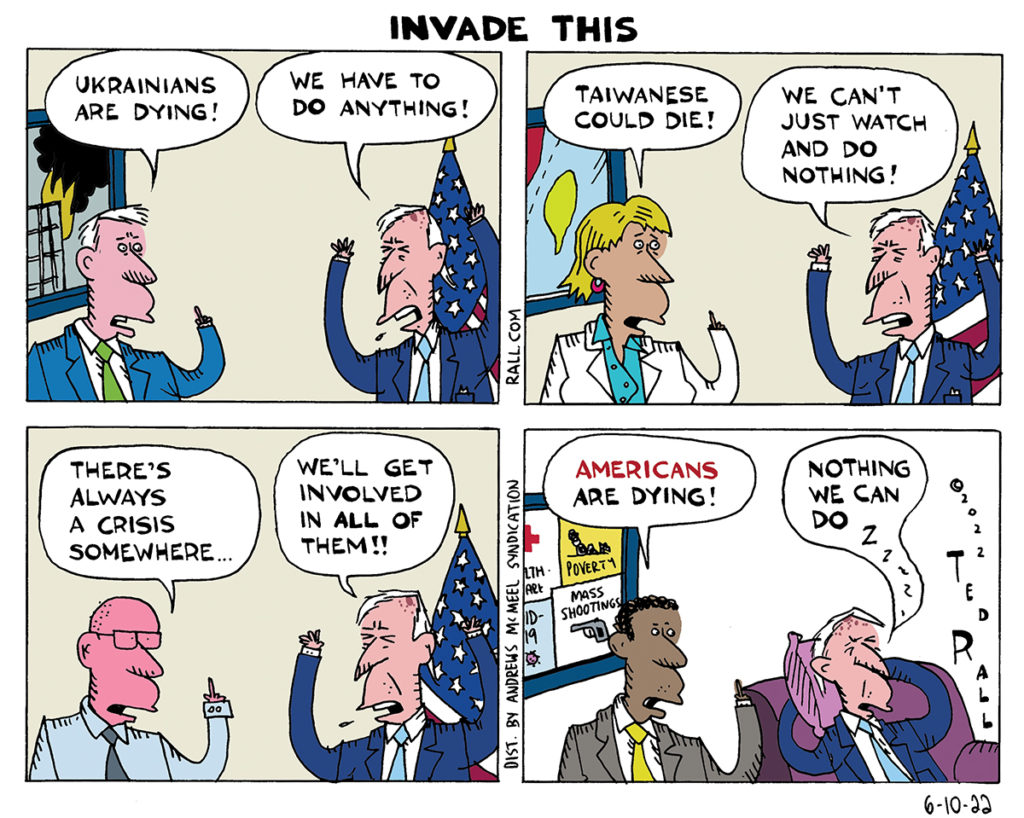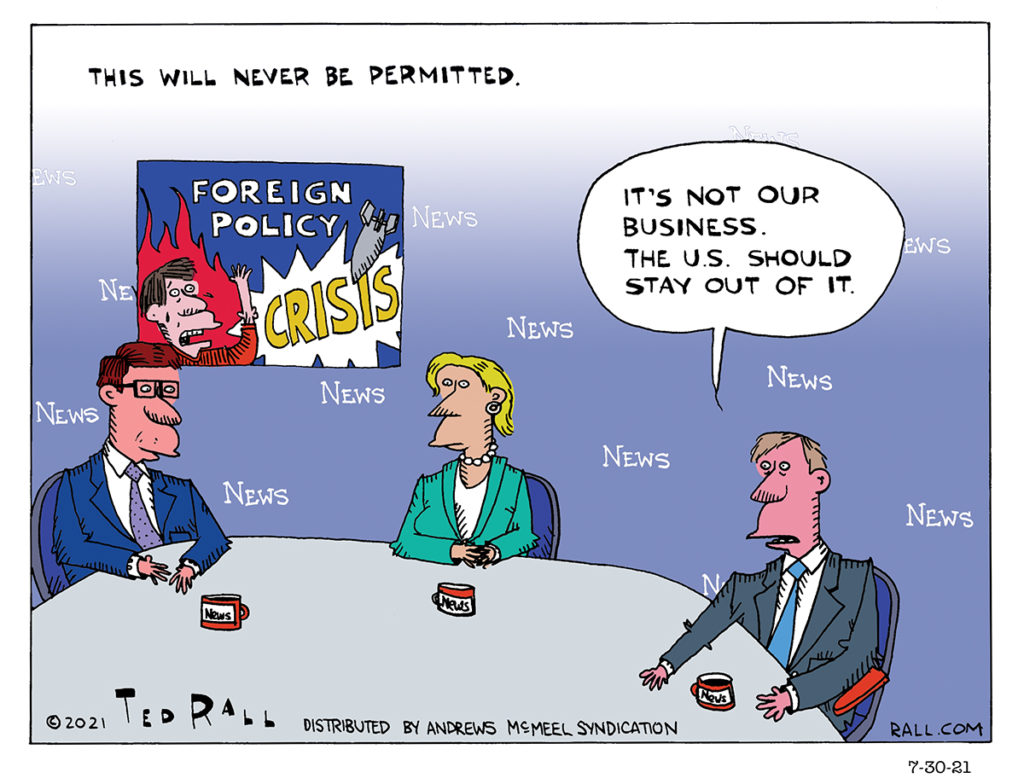Editorial cartoonists Ted Rall (from the political Left) and Scott Stantis (from the political Right) discuss the week’s biggest stories without the boring yell fests but with force and passion.
First off, the United States House of Representatives overwhelmingly passed legislation that would force the Chinese company that owns TikTok to divest itself of the social media company within six months. President Biden says he will pass the measure if it hits his desk but its future is uncertain in the US Senate. Scott and Ted discuss the cultural, economic, legal and political implications of targeting a company purely based on conjecture and speculation with no proof that it has any plans to act nefariously.
Secondly, third and independent party presidential runs are in the news. Robert F Kennedy Junior is about to announce his choice for his voice presidential running mate. No Labels is about to appoint a committee to determine its options for president and vice president this year. Dr. Jill Stein will almost certainly be the nominee for the Green Party. And Dr. Cornel West is running his so-called jazz campaign.
Finally, five months into Israel’s war against Hamas in the Gaza Strip, it is very clear that Israel has overreached and is dangerously close to becoming an international pariah. Meanwhile, United States considers the possibility of military intervention in Haiti, something that has never gone well in the past. Ukraine, of course, will soon have to accept the difficult truth that it has lost its war against Russia.
Watch the Video Version: here.








